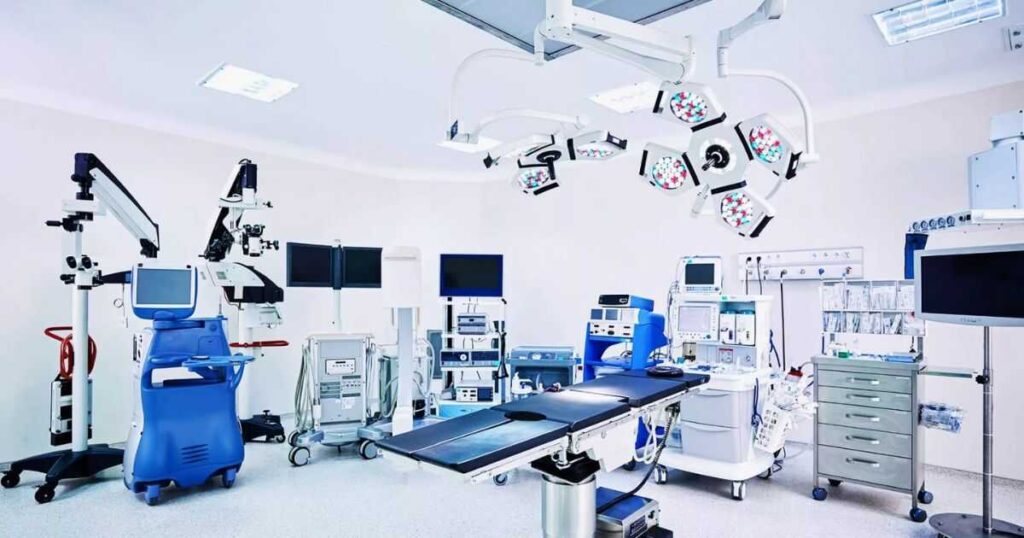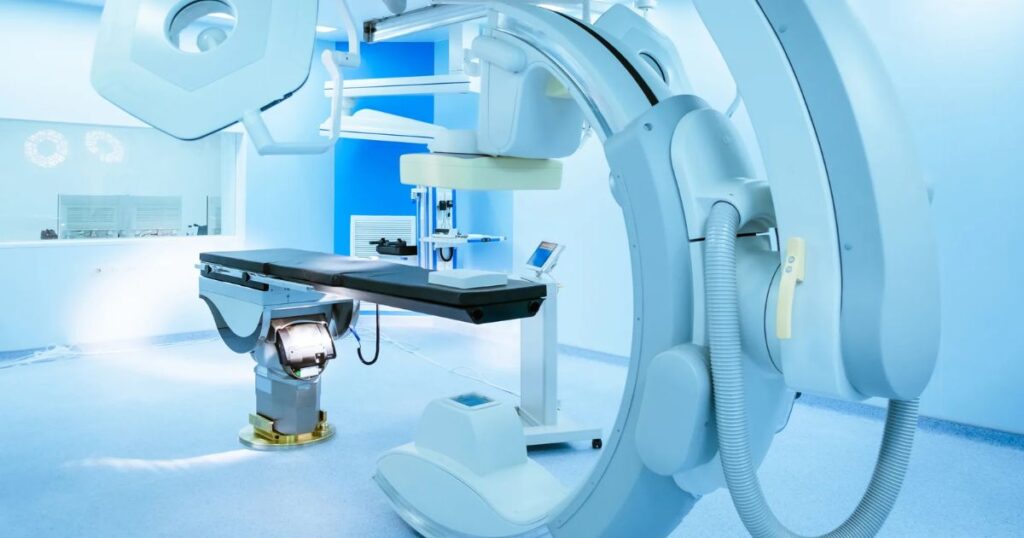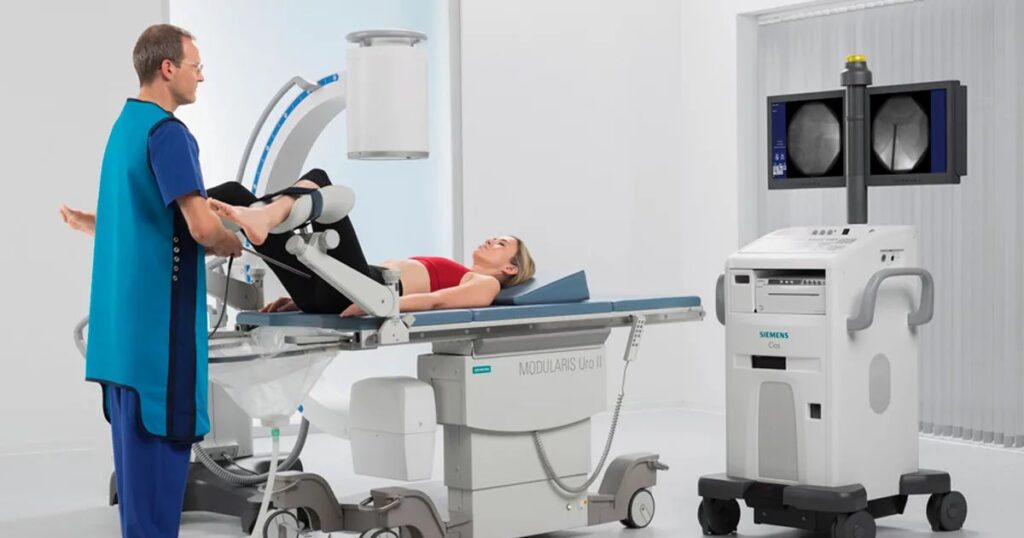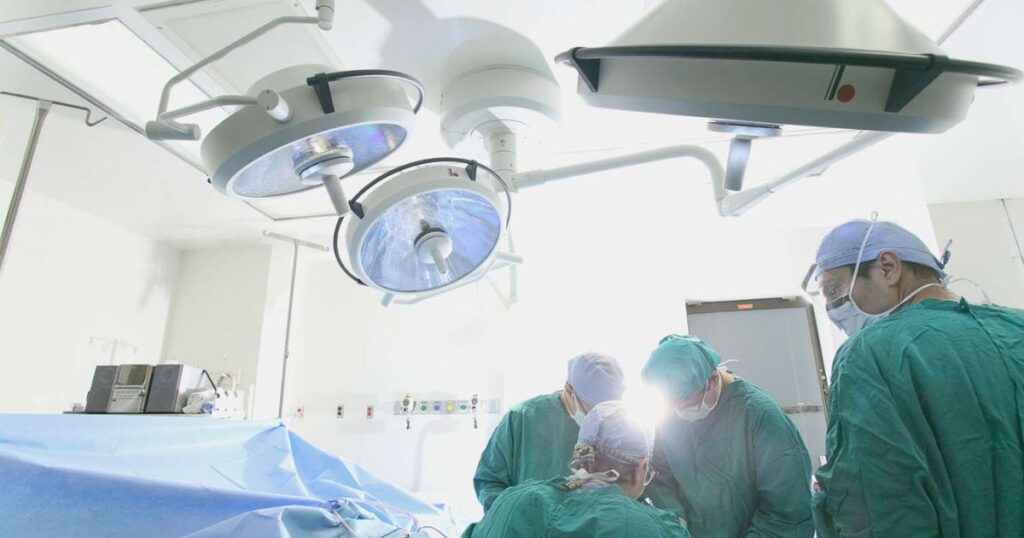Surgical techs, also called scrub technicians or surgical assistants, are essential members of the operating room team. They prepare instruments and supplies, maintain sterile technique during procedures, and help the surgeon as needed. Techs ensure all steps are carefully followed to keep patients safe.
No two days are the same for a surgical tech. From joint replacements to transplants, each new case presents unique challenges to anticipate the surgeon’s needs. With critical tasks and many eyes watching, techs must always be prepared for the unexpected in the fast-paced OR environment.
Techs often specialize in certain types of surgeries like orthopedics or neurosurgery. This allows them to gain specialized instrument knowledge and learn each surgeon’s preferences. During operations, techs pass instruments, hold tissues, and change between sterile gowns and gloves many times. Precision in their work contributes directly to positive patient outcomes.
What Is A Surgical Tech?
Surgical technologists, also known as operating room technicians, play a vital role in the healthcare team. They assist surgeons, anesthesiologists, and registered nurses before, during, and after surgical procedures. Responsible for preparing the operating room, sterilizing instruments, and ensuring a sterile environment, they are the unsung heroes behind successful operations.
With specialized training in medical terminology, human anatomy, and surgical procedures, surgical techs are the set of skilled hands that enable surgeons to focus on the intricate work of the surgery itself. Their attention to detail and ability to anticipate the needs of the surgical team make them indispensable members of the operating room staff.
What Does A Surgical Tech Do?
Surgical technologists are the orchestra conductors of the operating room, orchestrating the intricate dance of medical instruments, supplies, and personnel. They meticulously prepare the operating suite, ensuring every tool and item is sterilized and ready for use. During the procedure, they anticipate the surgeon’s needs, handing over the precise instrument at the perfect moment.
Don’t miss to read out this blog: How To Become A Nail Tech?
With eagle-eyed vigilance, they monitor the sterile field, maintaining the highest standards of cleanliness. Their deft hands and quick thinking help streamline the surgical workflow, allowing the team to focus on the critical task at hand. From start to finish, surgical techs are the unsung heroes who make safe, successful operations possible.
Before An Operation

In the calm before the storm, the surgical tech’s role comes into sharp focus. They arrive early to methodically set up the operating room, laying out instruments, medications, and equipment in a precise, organized manner. With practiced efficiency, they scrub in, donning sterile gowns and gloves to create a secure, aseptic environment.
As the patient is wheeled in, the tech reviews the surgical plan, ensuring they have everything necessary for the upcoming procedure. With keen observation, they monitor the patient’s vital signs, standing ready to assist the anesthesiologist as needed. In those tense moments before the first incision, the surgical tech’s vigilance and preparation are the unsung foundations of a successful operation.
During An Operation
As the scalpel first touches the skin, the surgical tech’s focus intensifies. They maintain a constant vigil, anticipating the surgeon’s every need and instantly handing over the required instruments. With lightning-fast reflexes, they suction away blood and tissue, keeping the operating field clear.
In perfect synchronization with the surgical team, they seamlessly provide retractors, sutures, and other critical supplies, never missing a beat. With unwavering concentration, the surgical tech orchestrates the flow of the operation, ensuring the surgeon can work with uninterrupted precision.
After An Operation
As the final sutures are placed, the surgical tech’s work is far from over. They spring into action, efficiently breaking down the sterile field and carefully disposing of any contaminated materials. With meticulous attention, they meticulously clean and sterilize the instruments, readying them for the next procedure.
While the patient is transferred to recovery, the tech restocks supplies, replenishes the surgical cart, and ensures the operating room is pristine and prepared. Their vigilance extends even after the operation, as they document the case details and maintain comprehensive records.
Where Do Surgical Techs Work?
Surgical technologists are not confined to the four walls of the operating room. Their expertise extends to a variety of healthcare settings, from trauma centers and emergency departments to outpatient surgical clinics and specialized hospitals. In large medical facilities, they may even work in a central sterile supply, ensuring the proper sterilization of all surgical instruments and equipment.
Some surgical techs choose to focus on a particular surgical specialty, such as cardiovascular, orthopedic, or obstetric procedures. Others may transition into roles as surgical assistants, providing direct support to the surgeon during complex operations. Wherever they find themselves, surgical techs are the indispensable linchpins that keep surgical workflows running smoothly.
Hospitals

Hospitals, the beating hearts of the healthcare system, are hubs of activity and innovation. These multifaceted institutions house a diverse array of specialized departments, from emergency rooms teeming with life-saving action to serene maternity wards welcoming new life.
Hospitals are not merely buildings – they are living, breathing organisms, constantly evolving to meet the ever-changing demands of modern medicine. With cutting-edge technology, rigorous protocols, and unwavering compassion, hospitals strive to be sanctuaries of healing, where the sick and injured can find solace and the path to recovery.
What Is The Job Of A Careful Tech?
Careful specialists help get ready for medical procedures by putting together the working room. They guarantee all devices and hardware are cleaned and prepared to utilize. They help specialists by giving over instruments during the activity. Before the medical procedure, they set up the room and ensure everything is set up.
After the strategy, they help tidy up and sanitize the region. Careful specialists assume a significant part in guarding the medical procedure process. Their attention to subtleties assists the whole group with working flawlessly during tasks.
How Do Careful Specialists Help Specialists?

During medical procedures, careful specialists work straightforwardly with the careful group. They are liable for passing careful devices to the specialist when required. This assists the specialist with zeroing in on carrying out the technique.
Careful specialists additionally monitor the instruments to guarantee nothing remains behind. They should be fast and exact to address the specialist’s issues. Their tender loving care guarantees that medical procedures go according to plan. Without their assistance, medical procedures could take more time or have more dangers.
What Abilities Do Careful Specialists Need?
Careful specialists should have a few significant abilities to find true success in their work. They need to give close consideration to guidelines and remain on track. Great cooperation is fundamental since they work with numerous other clinical experts.
Read This Blog: honda-pilot-2025
They should likewise be quiet and composed, particularly during unpleasant circumstances. Careful specialists need to know how to accurately utilize every one of the devices and gear. Their capacity to remain coordinated is significant for patient security. These abilities assist them with supporting the careful group in conveying powerful consideration.
Outpatient Surgical Centers
Outpatient surgical centers are the nimble, specialized counterparts to the sprawling hospital campuses. These streamlined facilities are designed to handle a wide range of elective and minor surgical procedures, from joint replacements to cosmetic enhancements. Unencumbered by the larger administrative burden of a hospital, outpatient centers can often provide a more efficient, patient-centric experience.
Also Read This Blog: What Does A Pharmacy Tech Do?
Surgical technologists play a vital role in these settings, ensuring the operating rooms are meticulously prepared and the workflow remains seamless. With shorter wait times and a laser-like focus on the specific procedure at hand, outpatient centers offer a convenient and cost-effective alternative for patients seeking quality, specialized care.
Physician Offices
Nestled within the bustling urban fabric or tucked away in quiet suburban enclaves, physician offices are the gatekeepers of primary care. These intimate clinical settings are where patients first seek diagnosis and treatment for a wide range of ailments, from routine check-ups to chronic conditions.
Beyond the exam room, they may also assist in the sterilization and maintenance of medical equipment, ensuring the office remains a clean, well-oiled machine. Though the scale may be smaller than a hospital, the importance of the surgical tech’s role in a physician’s office cannot be overstated, as they help to uphold the highest standards of patient safety and care.
Surgical Tech Specializations

Surgical technologists have the opportunity to further hone their skills and expertise by pursuing specialized training and certifications. From cardiovascular and orthopedic procedures to labor and delivery, these professionals can develop advanced competencies in specific surgical disciplines.
This specialized knowledge allows them to provide even more tailored support to surgeons, anticipating their needs and ensuring the highest standards of patient care. By continuously expanding their capabilities, surgical techs demonstrate their commitment to excellence and position themselves as indispensable members of the healthcare team.
Skills Required To Be A Surgical Tech
Surgical technologists must possess a unique blend of technical expertise, unwavering focus, and adaptability. Meticulous attention to detail is essential, as they must meticulously set up the sterile surgical field and ensure the proper instruments are readily available.
Strong communication skills allow them to work in perfect harmony with the entire surgical team, translating complex medical terminology into clear directives. An in-depth understanding of human anatomy, medical terminology, and surgical procedures underpins their ability to provide vital assistance.
Education, Certification, & Licensing Requirements For Surgical Techs
Aspiring surgical technologists must complete an accredited educational program, typically culminating in a diploma, certificate, or associate degree. These programs provide comprehensive instruction in anatomy, medical terminology, surgical procedures, and sterile technique. Upon graduation, students must pass the Certified Surgical Technologist (CST) exam administered by the National Board of Surgical Technology and Surgical Assisting (NBSTSA).
Many states also require surgical techs to obtain a professional license, involving ongoing continuing education to maintain their specialized skills and knowledge. This rigorous credentialing process ensures surgical technologists are fully equipped to provide exceptional patient care and uphold the highest industry standards.
Education Requirements

Aspiring surgical technologists embark on a transformative educational journey, equipping themselves with the specialized knowledge and skills required to excel in the operating room. Accredited programs, offering an associate’s degree or a certificate, provide a comprehensive curriculum that blends rigorous classroom instruction with extensive hands-on clinical training.
This multifaceted approach, which often includes rotations through various surgical specialties, ensures graduates are well-prepared to seamlessly integrate into the dynamic healthcare team upon completing their studies. The dedication and diligence exhibited during this educational process lay the foundation for surgical techs to become invaluable assets in the pursuit of optimal patient outcomes.
Certification Requirements
Upon completion of their formal education, aspiring surgical technologists must demonstrate their mastery of the field by passing the Certified Surgical Technologist (CST) exam, administered by the National Board of Surgical Technology and Surgical Assisting (NBSTSA).
The CST credential is widely recognized as the gold standard for surgical technologists, opening doors to employment opportunities across a diverse range of healthcare settings. Maintaining this certification through continuous education and professional development further solidifies the surgical tech’s commitment to providing exceptional patient care and upholding the integrity of the surgical profession.
Licensing Requirements
In addition to the national certification, many states also require surgical technologists to obtain a professional license to practice. These state-level licensing requirements often mandate successful completion of an accredited educational program, passage of the CST exam, and ongoing fulfillment of continuing education credits.
The licensure process ensures surgical techs maintain the specialized knowledge and skills necessary to provide safe, high-quality patient care within their respective jurisdictions. Adhering to these rigorous standards not only protects the well-being of patients but also reinforces the surgical tech’s dedication to the medical field and their role as an integral member of the healthcare team.
Surgical Tech Salaries & Job Outlook
Surgical technologists enjoy a promising career outlook, with the Bureau of Labor Statistics projecting a faster-than-average employment growth of 9% between 2021 and 2031. As the healthcare industry continues to expand and the demand for skilled surgical support personnel rises, certified surgical techs can expect competitive salaries that reflect their essential contributions.
According to the most recent data, the median annual wage for surgical technologists in the United States stands at approximately $51,000, with the top 10% of earners commanding salaries over $72,000. This financial stability, coupled with the opportunity to make a tangible impact on patient outcomes, makes the surgical tech profession an attractive option for those seeking a fulfilling and in-demand career in the dynamic field of healthcare.
Your New Medical Assistant Career Starts Here

Embark on an exciting journey as a medical assistant, where your passion for healthcare and attention to detail can truly shine. This versatile role allows you to provide vital support to physicians and nurses, mastering a diverse range of administrative and clinical tasks that are essential to the smooth operation of any medical practice.
With comprehensive training and the opportunity to specialize in areas such as phlebotomy, EKG, and medical coding, the path to becoming a skilled and indispensable member of the healthcare team is well within your reach. Take the first step towards a rewarding career that puts you at the heart of patient care.
Your New Pharmacy Technician Career Starts Here
Unlock the door to a fulfilling career as a pharmacy technician, where your meticulous attention to detail and passion for healthcare can make a tangible difference in people’s lives. This dynamic role allows you to work alongside licensed pharmacists, mastering the intricate tasks of medication preparation, inventory management, and patient service.
With comprehensive training that covers everything from pharmaceutical terminology to insurance billing, you’ll gain the specialized knowledge and skills needed to thrive in this rapidly growing field. Start your journey towards becoming an essential member of the pharmacy team and contribute to the wellbeing of your community.
Become A Certified Phlebotomist Tech
Embark on a rewarding career path as a certified phlebotomy technician, where your steady hands and exceptional patient care skills can have a direct impact on healthcare outcomes. Through comprehensive training in venipuncture, specimen collection, and laboratory procedures, you’ll develop the expertise to expertly draw blood samples and assist in vital diagnostic testing.
With a nationally recognized certification in hand, you’ll be equipped to join the dynamic healthcare team, providing essential support in hospitals, clinics, and blood banks. Take the first step towards a fulfilling career that puts your compassion and technical abilities to work, improving the lives of patients every day.
FAQ’s
What Is The Highest Paid Surgical Tech?
Traveling surgical techs in high-demand specialties like cardiothoracic earn top dollar, with compensation cracking six figures for those willing to work overtime or relocate worldwide.
How Long Does It Take To Be A Surgical Tech In Ga?
The quickest path is a 12-month certificate program followed by certification exams – but hands-on experience refining one’s craft in hospitals best prepares one to seamlessly assist in the surgical suite.
What Is A Cst?
The OR MVP, a CST proves their surgical worth in pre-op prep and peri-op support, ensuring every procedure reaches a successful final out.
How To Become A Surgical Tech In NY?
Empire State surgical hopefuls, diploma in hand, it’s time to train. Enroll now for classroom and clinical rotations, then conquer the CST exam to work among New York’s finest OR crews.
Conclusion
As you explore the diverse array of healthcare careers, from surgical technologists and medical assistants to pharmacy technicians and phlebotomists, one thing remains clear, the path to a rewarding and impactful profession begins with comprehensive education and training.
Whether you’re seeking to launch a new career or enhance your existing skillset, these specialized programs offer the knowledge, hands-on experience, and industry-recognized certifications necessary to excel in high-demand healthcare roles. Embark on your journey today and unlock the door to a fulfilling future where you can make a genuine difference in the lives of those you serve.








